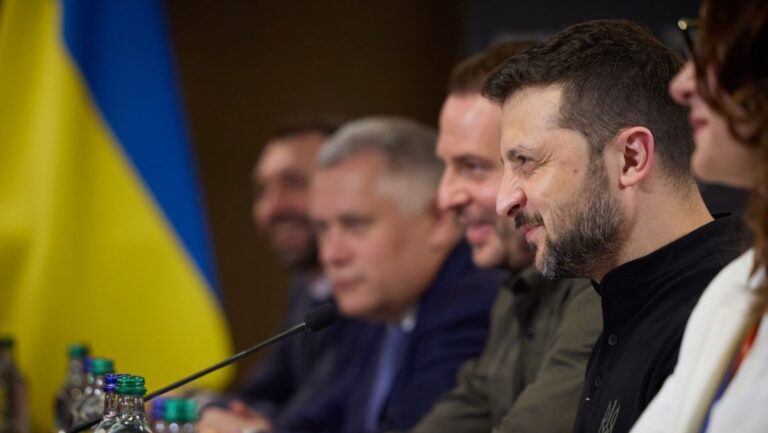The NATO summit in Washington, held in recent days, has reignited discussions around Ukraine’s possible membership in the North Atlantic Treaty Organization (NATO).
This prospect, if realized, could have profound geopolitical, economic, and security consequences for Europe and the broader international community. The inclusion of Ukraine in NATO is a complex issue, touching on historical tensions, current conflicts, and future stability in the region.
Table of Contents
Geopolitical shifts
The most immediate consequence of Ukraine joining NATO would be a significant shift in the geopolitical landscape of Eastern Europe. Ukraine, historically a buffer state between Russia and Western Europe, would officially align with the West.
This shift would mark a substantial defeat for Russian geopolitical strategy, which has long aimed to keep Ukraine within its sphere of influence.
The annexation of Crimea in 2014 and the ongoing conflict in Ukraine are indicative of Russia’s intent to maintain its influence over Ukraine. NATO membership for Ukraine would be seen as a direct challenge to Russian hegemony in the region, likely escalating tensions between NATO and Russia.
Security implications
From a security perspective, Ukraine’s NATO membership would mean an extension of NATO’s collective defense guarantee to include Ukraine. Article 5 of the NATO treaty states that an armed attack against one member is considered an attack against all members.
This provision would obligate NATO to defend Ukraine in the event of Russian aggression. Such a scenario raises the stakes significantly, as it could potentially lead to a direct military confrontation between NATO and Russia, two nuclear-armed entities.
The strategic calculus for NATO would involve managing this risk while deterring further Russian aggression in Eastern Europe.
Impact on NATO’s strategic posture
For NATO, integrating Ukraine would require a considerable adjustment of its strategic posture. The alliance would need to bolster its presence in Eastern Europe, enhancing its military capabilities and readiness in the region.
This could involve deploying additional troops, setting up new bases, and increasing military exercises to ensure readiness and deterrence. Such measures would not only be costly but could also strain the alliance’s unity, as some member states may be more reluctant to provoke Russia or escalate military commitments.
Economic consequences
The economic consequences of Ukraine joining NATO are multifaceted. On one hand, Ukraine could benefit from increased foreign investment and economic aid from Western countries, which often accompany security guarantees.
NATO membership could provide a sense of stability and security, making Ukraine more attractive to investors. On the other hand, the economic cost of military buildup and potential escalation of conflict with Russia could be significant.
Sanctions and counter-sanctions between NATO countries and Russia could disrupt trade and economic relations, particularly impacting European economies with strong ties to Russia.
Domestic political dynamics in Ukraine
Domestically, Ukraine’s NATO membership could consolidate its Western-oriented political factions, while potentially marginalizing pro-Russian elements. The move would likely be popular among Ukrainians who see NATO membership as a path to greater security and integration with Europe.
However, it could also deepen internal divisions, especially in regions with strong cultural and historical ties to Russia. Managing these internal dynamics would be crucial for Ukraine to ensure that the benefits of NATO membership are fully realized without exacerbating internal conflicts.
Broader international repercussions
The broader international repercussions of Ukraine joining NATO could extend beyond Europe. Other countries with contentious relations with Russia, such as Georgia, might also push harder for NATO membership, leading to a broader reevaluation of security arrangements in regions bordering Russia.
Additionally, other global powers, particularly China, would closely watch the developments, as they could influence global strategic balances and alliances.
In conclusion, Ukraine’s potential entry into NATO post-Washington summit carries significant consequences for regional and global security.
It represents a critical juncture in the ongoing struggle between Western and Russian influence in Eastern Europe. The decision would not only redefine NATO’s strategic posture but also have profound implications for geopolitical stability, economic relations, and domestic politics within Ukraine and beyond.












